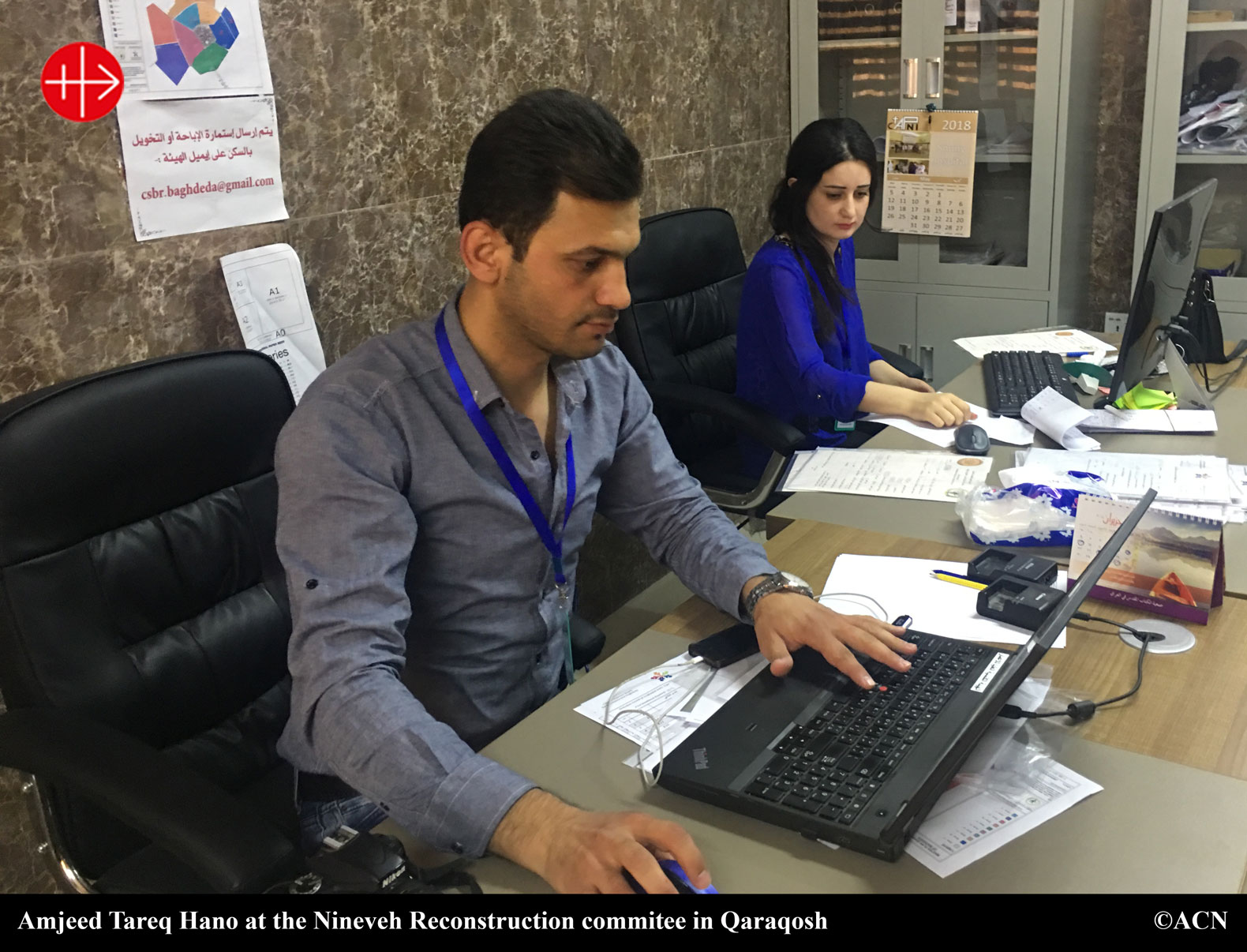IRAQ
Defeating IS with plaster and bricks
Aid to the Church in Need helps Christians rebuild their houses after they were destroyed by Islamic State
Slowly, house by house, the destruction that IS left behind after capturing Christian cities and villages in August of 2014 is becoming a memory. And at the very heart, directing the efforts to rebuild the Christian cities and villages on the Nineveh plains, is the Nineveh Reconstruction Center. Every day, those involved use plaster and bricks to celebrate small victories over the terror spread by IS. “When I first came back in March of 2017 after Qaraqosh was liberated, everything was either destroyed or damaged. That was very, very sad to see. But even then it was clear to me that the damage could be repaired,” Sabah Zakaria says. The 60-year-old engineer oversees the technical side of the reconstruction efforts. He is tackling this staggering task with a team of 70 engineers. The goal is nothing less than to restore the basis of life for Christians in Iraq. “Houses are not everything, but without houses to live in, everything is nothing,” Zakaria points out, without, however, minimizing the importance of such concerns as the lack of safety or jobs. Aid to the Church in Need (ACN) is doing a great deal to support the engineers’ reconstruction work. Zakaria’s own house was restored with the help of ACN. The engineer is convinced that the efforts put into reconstruction have not been in vain. “It is a huge joy to see our beautiful city come to life again,” he says. And this, in fact, is true. Qaraqosh – which, before 2014, was the country’s largest Christian city with more than 50 000 inhabitants – looks just like a typical Arab city again. The streets are of course still full of potholes. The government does not have the funds to repair them or simply has other priorities. But the main street is teeming with activity. Merchants are selling meat, vegetables and household goods in their stores. Cars and pedestrians battle over the right of way. The cafés are full. Men play cards there or entertain themselves with eastern board games. And the city’s first-ever pasta restaurant is open for business. “Things are about 80 per cent back to normal,” Zakaria comments optimistically. In fact, almost half of the people have returned.
The engineers are supported by a team of young people. Amjeed Tareq Hano is one of them. The 28-year-old beams as he sits in his office, a stack of documents before him. “These are funding requests,” the aide explains. “Various levels of funding are approved depending upon the severity of the damage. To be eligible, the owners have to live in their own houses and help with the renovations. This saves costs, which means we can help more people.” He was already helping when he himself was a refugee in Ankawa, a Christian district in the Kurdish capital of Erbil. A trained nurse, he worked at the emergency medical clinics that had been set up for the Christians there. “We would not have been able to survive as refugees without the support of the church. The same is true now: without the help of Aid to the Church in Need, nothing would be moving forward.” Not even once has he regretted his decision to return with his parents, two sisters and three brothers in August of 2017. Day-to-day life is anything but easy. Their water is brought in with tanks and is over chlorinated. “We have to boil everything before we can drink it.” Electricity is produced by generators; the streets are in poor condition. The government has not even granted a dollar in support. However, none of this discourages Amjeed. “Obviously, living in Iraq is anything but safe. But home is home.” Many friends and relatives of the young, single man living in other countries, particularly in Australia. “I miss them. Their absence is sorely felt.” Although they have encouraged him to follow suit and leave Iraq, emigration is out of the question for Amjeed. “I am young and have my whole life ahead of me. With God’s help, I want to spend it in my homeland of Iraq. I thank everyone who is making this possible.”
Oliver Maksan – ACN UK





